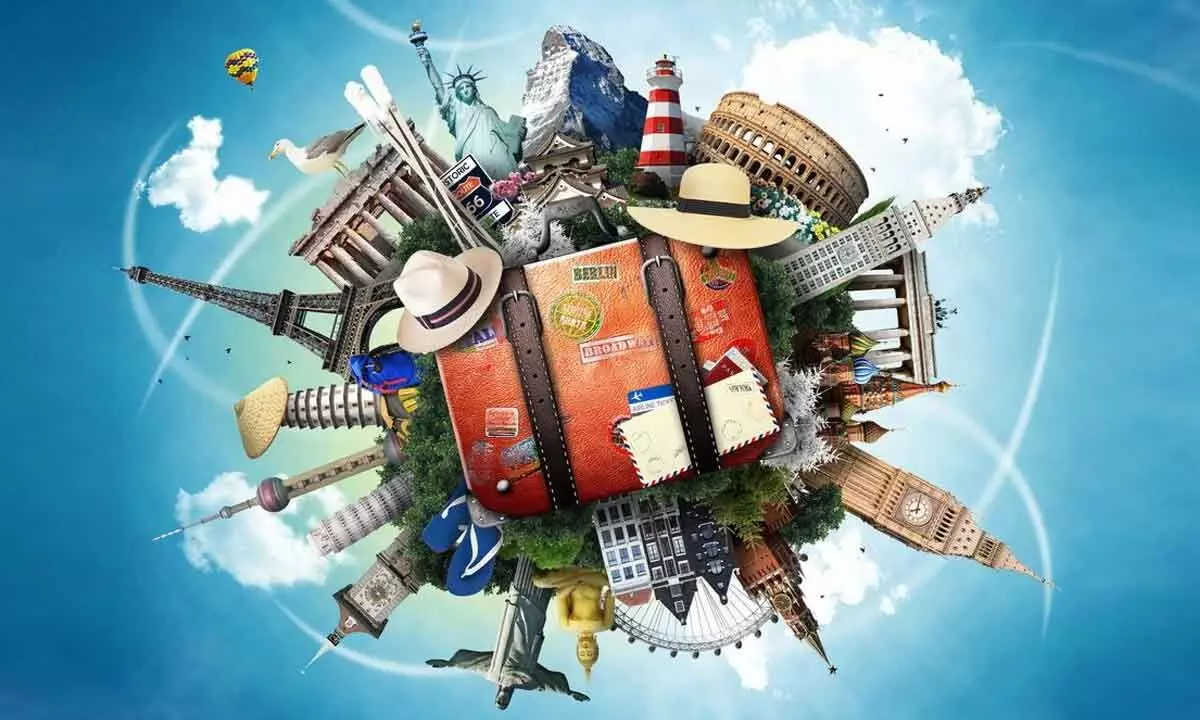The Goa Roadmap for Tourism

Since 2019, the world has changed dramatically making it imperative for the tourism value chain to evolve itself. If the sector is to face up to its climate action responsibilities while at the same time growing back to drive economic development and provide opportunities for all, it must embrace new voices and new ideas
The pandemic-induced pause in international travel presented once-in-a-lifetime opportunity to retrospect tourism in its entirety-both where the sector is at and where it is going. Since 2019, the world has changed dramatically making it imperative for the tourism value chain to evolve itself. If the sector is to face up to its climate action responsibilities while at the same time growing back to drive economic development and provide opportunities for all, it must embrace new voices and new ideas.
UNWTO (The World Tourism Organization) has developed with the G20 economies a roadmap for making tourism a central pillar of the 2030 Agenda for Sustainable Development.
As the knowledge partner of India’s G20 Presidency, UNWTO delivered the Goa Roadmap for Tourism as a vehicle for achieving Sustainable Development Goals (SDGs) at the meeting of the Ministers of Tourism of the world’s leading economies.
The Goa Roadmap for Tourism as a vehicle for achieving the SDGs proposes a plan of action for G20 economies to lead the way forward towards a better future for all.
Green Tourism: Recognizing the critical need to work towards climate action and environmental protection and related international cooperation, the Goa roadmap incorporates recommended actions and good practices from G20 economies and guest countries on issues such as financing, sustainable infrastructure and resource management, integrating circular approaches in the tourism value chain and engaging visitors as key actors in sustainability.
Digitalization: The roadmap makes clear the wide-ranging benefits of supporting businesses and destinations embrace digitalization, including enhanced productivity, improved infrastructure management and delivering a safer and more efficient visitor experience.
Skills: Reflecting one of UNWTO’s core priorities for the sector, it emphasizes the need to provide tourism workers, particularly youth and women, with the skills employers need, to future-proof tourism jobs and to make the sector a more attractive career path.
Tourism MSMEs: With Micro, Small and Medium Enterprises (MSMEs) accounting for 80% of all tourism businesses worldwide, the roadmap emphasizes the importance of public policies and public-private partnerships in addressing key challenges, including financing, marketing and skills gaps and market access to support MSMEs through the digital and sustainable transitions.
Destination management: It presents a set of proposed actions to create a holistic approach to destination management that strengthens public-private-community partnerships and enhances a whole of government approach. It further shares examples of innovative programmes among G20 and invited countries.
UNWTO Secretary-General Zurab Pololikashvili said: “As tourism bounces back close to pre-pandemic levels, we must ensure that recovery is sustainable, inclusive and resilient. The Goa Roadmap for Tourism as a vehicle for achieving SDGs offers the G20 economies a proposed plan of action to lead the way forward towards a better future for all.” Union Tourism Minister G Kishan Reddy added: “Tourism can be instrumental in addressing many of the challenges faced by our societies while transforming itself to address the socio-economic impacts. Working together on a common roadmap for recovery and long-term sustainability will unlock its immense potential to deliver on the SDGs.”
Reducing waste and increasing circularity: Both UNWTO and the UN Environment Programme hosted a side event “Towards a circular economy of plastics in tourism – the Global Tourism Plastics Initiative”, in association with the Union Tourism Ministry.
The Global Tourism Plastics Initiative (GTPI) provides a common vision for a circular economy of plastics in tourism. The side-event provided delegates and participants with practical guidance to address plastic pollution in tourism operations.
Participants included country representatives (India, Indonesia), accommodation (ITC Hotels, Leela Palaces Hotels & Resorts and The Indian Hotels Company Limited) and aviation (International Air Transport Association, IATA).
The Central Nodal Agency for Sustainable Tourism of India, a technical agency of the Ministry of Tourism, became a signatory of the Global Tourism Plastics Initiative, together with the Government of Punjab and the Responsible Tourism Society of India.
The G20 economies represent around 85% of the global GDP, over 75% of the global trade, and about two-thirds of the world population. In 2022, G20 welcomed 74% of international tourists and 73% of tourism exports worldwide. In the pre-pandemic 2019, the tourism direct GDP reached 3.7% of the G20 economies.








